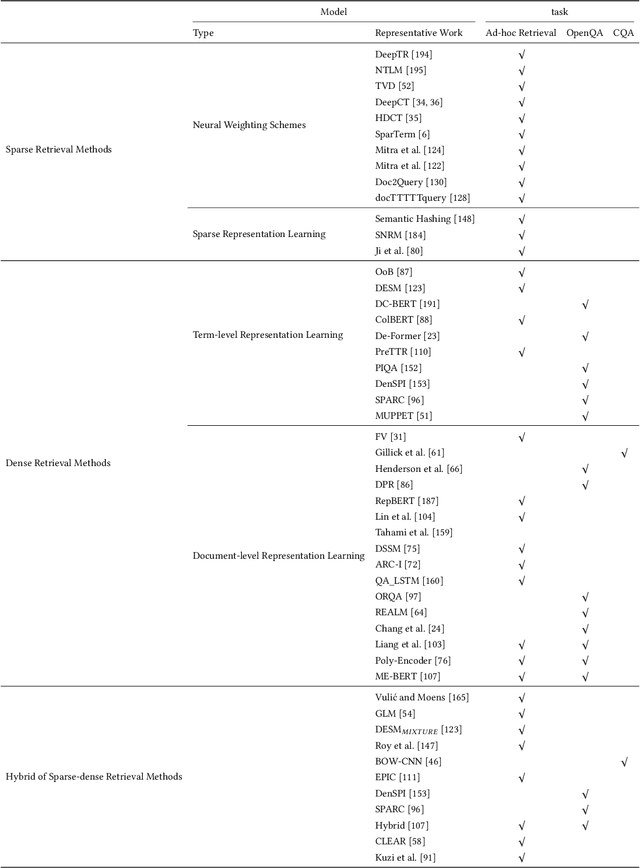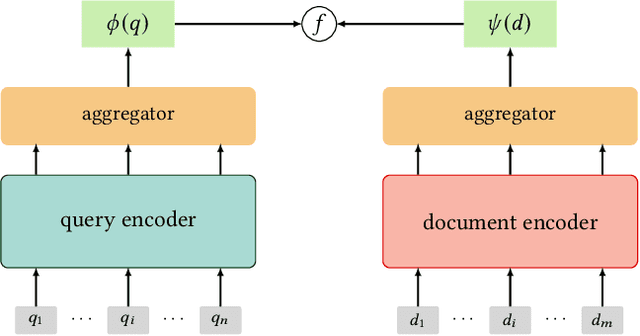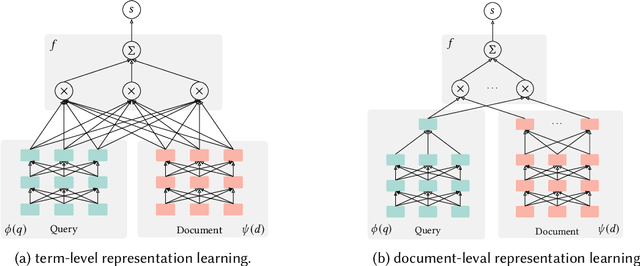Semantic Models for the First-stage Retrieval: A Comprehensive Review
Paper and Code
Mar 12, 2021



Multi-stage ranking pipelines have been a practical solution in modern search systems, where the first-stage retrieval is to return a subset of candidate documents, and the latter stages attempt to re-rank those candidates. Unlike the re-ranking stages going through quick technique shifts during the past decades, the first-stage retrieval has long been dominated by classical term-based models. Unfortunately, these models suffer from the vocabulary mismatch problem, which may block the re-ranking stages from relevant documents at the very beginning. Therefore, it has been a long-term desire to build semantic models for the first-stage retrieval that can achieve high recall efficiently. Recently, we have witnessed an explosive growth of research interests on the first-stage semantic retrieval models. We believe it is the right time to survey the current status, learn from existing methods, and gain some insights for future development. In this paper, we describe the current landscape of semantic retrieval models from three major paradigms, paying special attention to recent neural-based methods. We review the benchmark datasets, optimization methods and evaluation metrics, and summarize the state-of-the-art models. We also discuss the unresolved challenges and suggest potentially promising directions for future work.
 Add to Chrome
Add to Chrome Add to Firefox
Add to Firefox Add to Edge
Add to Edge